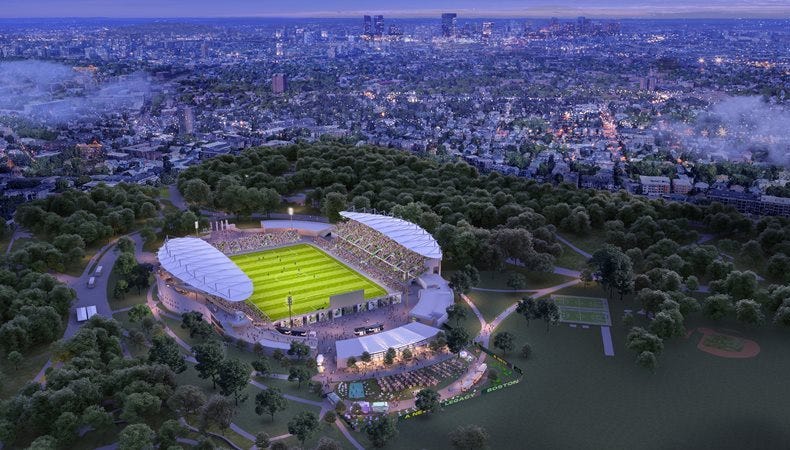White Stadium Trial Awaits Verdict
The judge said he plans to make a decision “within a week or two.”
The White Stadium renovation trial parties presented their closing arguments Thursday, two days after the start of the proceedings.
The city and Boston Unity Soccer Partners (BUSP) chose to forgo submitting any new evidence after the judge allowed the plaintiffs, the Emerald Necklace Conservancy and a group of Boston residents, to add two new claims to their lawsuit the day before.
Prior to the closing statements Superior Court Justice Matthew Nestor addressed the observers who sat at the back of the small courtroom. Advocates on both sides of the issue filled the gallery throughout the three days.
“You don't hate each other, which is great, because no matter what happens in this case, the neighborhood's going to go forward in one fashion or another, and you're all going to still be neighbors and still be friends,” he said before thanking them.
Attorney Gary Ronan, on behalf of the defendants, began his closing arguments by pointing out the language in Article 97 of the Massachusetts Constitution.
The crux of the lawsuit is whether the stadium parcel is subject to Article 97, which is designed to preserve open space, protect natural resources, and prevent parkland from being privatized. Land subject to this rule would require a two-thirds vote of the state legislature before it could be used for other purposes.The plaintiffs claim the stadium parcel is considered parkland and is therefore protected by the article.
“Article 97 is about the protection of natural resources and the public's right to enjoy [them]. It is not about protecting buildings,” Ronan said. “It is not about protecting large, concrete sports stadiums where 10,000 people can sit on man-made construction.”
Alan Lipkind, the plaintiffs’ attorney, used his closing argument to reiterate that White Stadium has been used as a park since it was built in 1949 and that the city acquired the land it sits on in 1883 for “park purposes.”
Even if the judge decides the stadium parcel is not subject to Article 97, Lipkind noted that traveling to and from the stadium requires using roads within Franklin Park that are protected by Article 97.
The stadium usage agreement signed by the city and BUSP includes a license that allows the soccer team to use the park’s roads to get to the stadium.
Lipkind called this an “attempt to deceive,” as he believes the correct enforcement would be an easement, an action that would set the Article 97 process in motion.
“It's a real world smell test,” Lipkind said. “No one in the real world puts $200 million into this project and plans to get there through a revocable license.”
The judge said he plans to make a decision “within a week or two.”



